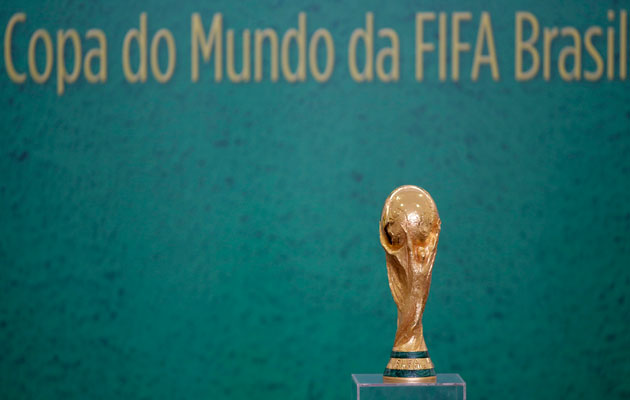European clubs’ hopes of persuading FIFA to opt for spring, if it must switch the 2022 World Cup timing, has been cast into doubt by the Qatari hosts.
Throughout nearly four years of controversy over the timing of the finals the Gulf state has remained resolutely above the battle.
The raison d’etre was simple and all in the cause of self-protection: Qatar had bid on the basis of a staging in the traditional June/July date with the use of revolutionary aircooling technology to offset the searing summer temperatures.
The award was contentious enough, against a bid system scandal which prompted a two-year investigation by ethics prosecutor Michael Garcia; a progress report is expected shortly from ethics judge Hans-Joachim Eckert.
Qatari officials refused to express any opinion for fear that any such statement would prompt beaten bid rivals – such as Australia, Japan, South Korea and United States – to demand a new vote on the grounds of a compromised vote by the FIFA executive committee.
Their first expression of opinion, according to a statement from the world federation, emerged from today’s Zurich meeting of the task force discussing the 2018-2014 international match calendar which encompasses the Qatar World Cup.
Hassan Al Thawadi, secretary-general of the 2022 organising committee, reiterated Qatar’s commitment to “delivering what was promised in its bid and organising the best possible event whatever is decided.”
Then, in a discussion about conditions in the differing seasons, Al Thawadi said that, if a switch were ordered from summer, then “the ideal situation and circumstances for an all-inclusive World Cup” would be winter rather than autumn or spring.
The significance of this is that the European Club Association and the European Professional Football Leagues had registered a proposal to the taskforce that they could accept a switch to April/May.
Now the clubs and leagues may have to go back their own drawing board before the taskforce meets again early next year.
The meeting was opened by FIFA president Blatter who has expressed a personal leaning towards November/December for the finals. Though January/February continues to be a technical option, FIFA has informally promised the International Olympic Committee that it will not encroach into the restricted time slot set aside for the 2022 Winter Olympics.
The timing taskforce, headed by Sheikh Salman Bin Ebrahim Al Khalifa, the Bahraini president of the Asian confederation, also heard a report from FIFA medical chief Professor Jiří Dvořák on health concerns for player and fan safety if the World Cup were held between May and September.
FIFA secretary-general Jerome Valcke also highlighted the start of the month-long Muslim fast of Ramadan on April 2, 2022, which might affect some players’ preparations for a spring date.
Sheikh Salman said: “The objective of the meeting was to receive feedback from all parties and work on narrowing the options.
“We are pleased with the level of detail provided by the participants and with the productive discussions. We now have a greater understanding of where each of the stakeholders is coming from and we will carefully consider these opinions as we move forward towards defining the international match calendar.”
Further discussions are scheduled for February or March with the aim of producing a recommendation to the subsequent FIFA executive committee meeting.







